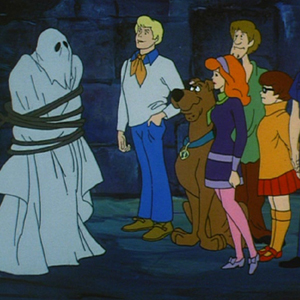Do you have a New Year’s resolution? Mine is to stop answering my children’s questions. Seriously. And strange as that may sound, especially coming from someone writing in a freethinking magazine, I have my reasons.
As humanist parents, we set ourselves very high standards when it comes to answering our children’s questions. We encourage their natural curiosity, their unfettered inquiry and their insatiable drive to understand the workings of the world. Their questions are precious seeds, to be handled with respect and answered with care.
All these worthy ideals mean that, in practice, we are bombarded with difficult, awkward and bizarre questions, invariably at the least appropriate of times. At the supermarket checkout, for example, juggling three children and a trolley full of shopping, those wide eyes look up and inquire, “Who made up words, Mummy?” Or, rushing around against the clock in the morning, hunting for lost school ties and a missing permission slip, I hear, “Is it true the world’s about to end?” Or the classic bedtime avoidance strategy: just as I switch the light off, a little voice pipes up with “Mum, where do robbers live?” All good questions, worthy of intelligent answers.
It may not be convenient or easy, but as humanists, we will endeavour to answer them (at some point) to the best of our abilities. We don’t utter, “because I said so” or “it just is” and certainly never “because God decided it would be that way”. We know these are all thought-stoppers.
Until recently, I had simply never contemplated that the giving of answers in itself can disable the mind and make it dependent and uncritical. That if life-long curiosity is our goal, then responding with quick information and “the correct answer” can stifle thinking and model minds that jump to unreflected and unverified conclusions. If we set ourselves up as unquestioned oracles of truth, we extinguish inquiry. According to “Bloom’s Taxonomy of the Cognitive Domain” (a classification system of intellectual levels, ranging from knowledge at the most basic level, though comprehension, application, analysis and synthesis to evaluation, the highest level), I have been supplying my children with the most base level of answers – pure information.
Instead, I should be playing question ping-pong – “What do you think?” and “How can we work that out?” If I answer the question factually, I should finish by posing a new related problem. Or guide them to finding multiple possible answers to a given query. (The pragmatist in me has not missed the fact that this new approach is also infinitely more checkout-compatible – “What do you think wasps are for?” is much better than “Ask me later”, which incidentally never works anyway.)
And above all, even when the smoke starts pouring from my ears and they have tied my brain in knots with their boundless mental agility, I have to appreciate the phase we’re in. For even in a book-loving, freethinking, knowledge-hungry family, the adults are astonishingly uncurious relative to the little ones. We either think we have all the answers already or are happy enough as long as someone somewhere has. Or maybe I shouldn’t be so cynical. Maybe you still scratch your head and wonder why the sky is blue. In fact, maybe you’re bursting to go right now and investigate the wavelength-dependence of light-scattering in the atmosphere.

